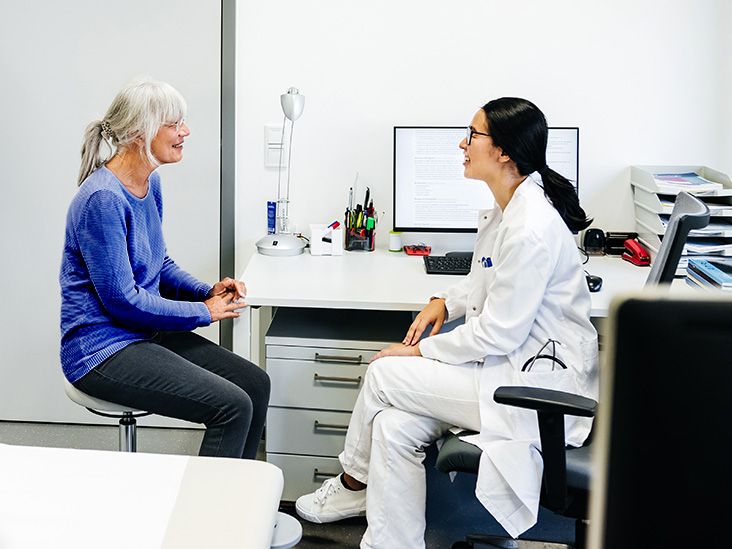You ever finish a meal and still feel empty? Not in your stomachthough that happens toobut kind of drained. Tired, foggy, like you didn't really feed yourself, just filled up?
Yeah. A lot of us in our 60s, 70s, and beyond feel that way more than we'd like to admit. And here's the thing: it's not just aging. Sometimes, it's whatand howwe're eating.
Your body doesn't need the same thing now that it did when you were 30. You don't need as many calories, sure, but you need way more of the right stuffnutrients that protect your heart, keep your bones strong, and maybe even help you remember where you left your keys.
A healthy diet for seniors isn't about cutting everything out or surviving on salads. It's about giving your body the fuel it actually craves to feel alive, independent, and in control. And honestly? It might be the most powerful tool you have to slow down aging, prevent chronic disease, and enjoy life moreright now.
Why It Matters
Look, I get it. Food feels personal. Maybe you've eaten the same way for decades. Why fix what isn't broken?
But here's the truth: our bodies change. And that's not a flawit's life. Metabolism slows. Muscles don't rebuild as quickly. Your senses dull. Even how you absorb nutrients shifts with age.
And all of that means if your diet stays the same, you're not doing yourself any favors. In fact, a lot of the fatigue, stiffness, or brain fog people write off as "just getting older" could actually be signs of nutritional gaps.
The good news? What you eat can be one of the most powerful forms of prevention. According to a study from Karolinska Institutet, published in Nature Aging, a nutrient-rich, anti-inflammatory diet can actually slow down the chronic disease processes that many assume are inevitable as we age.
So this isn't about vanity. It's about vitality.
Chronic Disease? Start Here
You know that friend who beats heart disease or diabetes for decades? Chances are, they didn't just get lucky. They made choicesespecially at mealtime.
Think about it: everything from high blood pressure to memory loss has a connection to food. It's not the only factor, of course, but it's a big one.
Heart disease loves sodium and saturated fatsthink processed meals, deli meats, and butter-heavy dishes. But swap those out for plant-based meals, whole grains, and good fats like olive oil, and your blood pressure might just thank you.
Type 2 diabetes thrives on refined sugars and white carbs. But when you focus on fiber-rich foodsbeans, oats, berriesyour blood sugar levels stay more stable. No spikes, no crashes, no mid-afternoon nap needed.
Osteoporosis creeps in when calcium and vitamin D fall short. But with daily servings of yogurt, leafy greens, or fortified alternatives, you're giving your bones armor.
And cognitive decline? Diets full of processed junk are linked to faster mental aging. On the flip side, the MIND and Mediterranean dietsrich in veggies, nuts, and fishhave been shown to support sharper thinking in later years.
Medicine has its place. But so does your spoon.
Two Seniors, One Big Difference
Meet June. She's 74, lives alone, and most days, dinner is a frozen meal or fast food. She drinks soda like water and barely notices the fatigue until she's already dozing off on the couch. Lately, her doctor gave her some tough news: high blood pressure and prediabetes.
And then there's Carlos. Also 76. He starts most mornings with scrambled eggs, a side of berries, and a walk around the block. His plate at dinner? Grilled salmon, roasted sweet potatoes, and a big handful of sauted spinach. His last checkup? His doctor said, "You're healthier than most people in their 60s."
Same age. Similar starting lines, really. But different daily habits. And over time, those little food choices added up.
You don't need to be perfect. You just need to be intentional.
What Changes As You Age?
If eating feels harder nowwhether it's losing your appetite, struggling to taste your food, or dealing with digestion issuesyou're not imagining it. These are real, common shifts that happen as we get older.
- Slower metabolism: You burn fewer calories, so overeatingeven healthy foodscan lead to weight gain.
- Muscle loss: We lose muscle mass as we age (it's called sarcopenia), which is why protein becomes extra important.
- Dulled taste and smell: Food might seem bland, which can make you crave salt or sugar to feel satisfied.
- Less thirst sensitivity: You might not feel thirsty, but you're already dehydrated.
- Dental or swallowing issues: Chewing tough foods becomes uncomfortable, which can limit your options.
The silver lining? You don't need a complete overhaul. Small, thoughtful changes can have a huge impact on how you feel every day.
What You're Missing And How to Fix It
Most seniors don't realize they're running low on key nutrientseven if they eat three meals a day. Some of the most common gaps include:
| Nutrient | Why It Matters | Top Food Sources |
|---|---|---|
| Vitamin B12 | Supports nerve health and energy. Many older adults absorb less of it naturally. | Fortified cereals, salmon, eggs, dairy. Consider a supplementtalk to your doctor. |
| Vitamin D | Aids calcium absorption and supports immunity. Sun exposure often isn't enough. | Fatty fish, fortified milk, egg yolks. Supplements are common and often recommended. |
| Calcium | Keeps bones strong and helps prevent fractures. | Low-fat dairy, fortified plant milks, kale, broccoli. |
| Fiber | Keeps digestion moving, supports heart health. | Beans, lentils, oats, apples, chia seeds. |
| Potassium | Helps balance sodium and lower blood pressure. | Sweet potatoes, bananas, spinach, avocados. |
| Protein | Precious for maintaining muscle and strength. | Greek yogurt, chicken, tofu, eggs, fish. |
A quick tip: most seniors eat very little protein at breakfast. Try starting your day with eggs, a yogurt parfait, or a smoothie with nut butter. It sets a strong tone for the rest of the day.
Best Foods for Seniors
If you're wondering where to begin, think color, variety, and simplicity. You don't need exotic superfoods. You need real food that's easy to find, prepare, and enjoy.
Eat the Rainbow
Fruits and vegetables should make up half your plate. They're packed with vitamins, antioxidants, and fiberwith very few calories.
Some all-stars: berries (great for brain health), spinach and kale (loaded with iron and calcium), carrots (hello, vision support), and beets (natural anti-inflammatories).
Don't stress about fresh-only. Frozen or pre-chopped vegetables are fantasticespecially when fatigue hits or chopping feels like a chore.
Fuel With Protein
Lean proteins go on a quarter of your plate. This isn't just for bodybuildersyour body needs protein to repair muscles, fight illness, and stay balanced.
Try wild salmon (rich in omega-3s), eggs (one of the most complete proteins), beans and lentils (cheaper, fiber-rich, and easy to cook), or skinless chicken and turkey.
Plant lovers: tofu and tempeh are solid choices and surprisingly simple to prepare.
Choose Smart Carbs
Another quarter of your plate? Whole grains. Oats, brown rice, quinoa, and whole-wheat pasta keep energy steady and digestion smooth.
Swap out white bread and sugary cereals when you can. Instead, try a bowl of oatmeal topped with berries and chia seeds. It's warm, filling, and a nutrition powerhouse.
Dairy or Alternatives?
If you tolerate dairy, low-fat milk, Greek yogurt, and cottage cheese are excellent for protein and calcium.
If not, no worries. Lactose-free milk and fortified soy, almond, or oat milks work toojust check the label to make sure they contain calcium and vitamin D.
Don't Fear Fat
Yes, fat. Healthy ones.
Avocados, olive oil, nuts, and seeds are rich in monounsaturated fatsgood for your heart and brain. Just avoid trans fats (often listed as "partially hydrogenated oils") and limit saturated fats like butter and processed meats.
Foods to Limit
You don't have to cut anything out completely. But being aware of what to scale back can make a real difference:
- Ultra-processed foods: Chips, frozen meals, cookiesoften high in salt, sugar, and unhealthy fats.
- Sugary drinks: Sodas and sweetened teas are empty calories in liquid form.
- High-sodium foods: Canned soups, deli meats, soy sauce. The CDC recommends under 2,300 mg of sodium a day for seniors.
- Excess alcohol: Can interfere with medications and increase fall risk. One drink a day for women, two for men, is the general guideline.
- Empty-calorie snacks: Pastries, candy, buttery crackers. They satisfy the mouth but leave the body hungry.
It's not about never enjoying your favorites. It's about balance. Think of it as upgrading your patterns, not punishing yourself.
Make It Doable
Let's be real: motivation fades. Energy dips. Cooking feels like a mountain some days.
So how do you stick with a healthy diet for seniors when life is life?
Simple Daily Wins
Try the Half-Plate Rule: fill half your plate with vegetables or fruit, a quarter with lean protein, and a quarter with whole grains. It's visual, easy, and works every time.
Plan just a few days ahead. You don't need a full weekly menu. Write down three dinners. Make a quick grocery list. Your future self will thank you.
Hydrate like it's your job. By the time you feel thirsty, you're already behind. Aim for half your body weight (in pounds) in ounces of water. So if you weigh 150 lbs, shoot for 75 oz. Add lemon, cucumber, or a splash of fruit juice to make it more appealing.
Learn to read labelsbut don't get overwhelmed. Focus on four things: added sugars (under 10g per serving), sodium (under 400mg), fiber (5g+ is great), and the ingredients list (shorter is usually better).
Eat with people when you can. Even if it's just one meal a week with a neighbor or at a senior center, sharing food lifts your mood and keeps you accountable.
Cooking Feels Hard? Try This
You're not failing if you're tired of cooking. Try:
- Grocery delivery with SNAP/EBT: Services like Amazon and DoorDash now accept EBT, making healthy food easier to access.
- Meal kits: Some, like Silver Cuisine, are made specifically for seniors with balanced nutrition in mind.
- Community help: Meals on Wheels isn't just for emergencies. Many seniors rely on it weekly.
- Batch prep: Roast a big tray of veggies, grill a few chicken breasts, cook a pot of quinoa. Mix and match all week.
One woman, Linda, told me: "I thought I had to cook everything from scratch. Then I threw frozen broccoli into the microwave and added canned beans to a salad. Game changer."
Smart Diets That Work
Not all diets are trendy or extreme. Some are built on decades of real science.
Anti-Inflammatory Eating
Inflammation isn't just swelling. It's a quiet process inside the body that can speed up aging and increase disease risk.
The anti-inflammatory diet fights that. It's not a fad. It's a way of eating focused on whole, real foods:
- Eat more: Fatty fish (salmon, mackerel), berries, leafy greens, olive oil, nuts, turmeric, ginger.
- Eat less: Refined carbs, fried foods, processed meats, excess sugar.
And yesthere's proof. That Karolinska study we mentioned? It found that sticking to this pattern slowed chronic disease markers in older adults over time.
Mediterranean Style
This one's a classic. Rich in vegetables, whole grains, fish, legumes, and olive oil. Light on red meat and processed foods.
It's linked to longer life, better brain function, and lower heart disease risk. And the best part? It's flexible. No strict rulesjust a framework for smarter choices.
Small Steps, Big Change
Let me say this clearly: you don't need to transform overnight. Perfection is not the goal. Progress is.
A healthy diet for seniors is not about restriction. It's about abundancefilling your days with foods that help you feel stronger, sharper, and more like you.
Start small:
- Add veggies to your sandwich or scrambled eggs.
- Swap soda for sparkling water with a slice of lemon.
- Try a bean-based soup or chili recipe this week.
And rememberyou're not alone. Talk to your doctor about your nutrition. Ask about Medicare's coverage for medical nutrition therapy if you have diabetes or kidney issues. Many seniors see a registered dietitian at no extra costjust mention it at your annual wellness visit.
Your body has carried you this far. Now, it's your turn to care for itwith kindness, consistency, and a plate full of good food.
What's one small change you'd like to try? I'd love to hear your thoughtsjust drop a comment below.
FAQs
What are the most important nutrients for seniors?
Seniors need more vitamin B12, vitamin D, calcium, fiber, potassium, and protein to support energy, bones, muscles, and digestion.
How can seniors improve their appetite and nutrition?
Eating smaller, frequent meals, adding healthy fats, flavoring food with herbs, and staying hydrated can help boost appetite and nutrient intake.
What is the best diet for older adults?
The Mediterranean and anti-inflammatory diets are highly recommended for seniors due to their focus on whole foods, heart health, and disease prevention.
How much protein should a senior eat daily?
Most seniors should aim for 1.0 to 1.2 grams of protein per kilogram of body weight each day to maintain muscle and strength.
Are supplements necessary for a healthy diet in seniors?
Some seniors benefit from supplements like vitamin D, B12, or calcium, but it’s best to consult a doctor before starting any.
Disclaimer: This article is for informational purposes only and does not constitute medical advice. Always consult with a healthcare professional before starting any new treatment regimen.
Related Coverage
Lose weight without sacrificing flavor. Discover 50 delicious weight loss foods like fruits, vegetables, whole grains, lean proteins, healthy fats and spices....
Learn how Medicare nonparticipating providers work, including billing practices and out-of-pocket costs. Get informed today....
Learn how Medicare benefit periods work, including coverage details, deductibles, and skilled nursing care rules....
Learn how to enroll in Medicare using SelectQuote’s services and make informed decisions about your healthcare coverage....
Get clear guidance on Medicare California options, from Original Medicare to Advantage and Medigap plans tailored to your needs....
Soothe anxiety and boost resilience with earthy, aromatic ashwagandha tea. Learn how the Ayurvedic adaptogenic herb relieves stress and fatigue plus simple homemade preparation....
Get trusted Medicare plan help from SHIP, 1-800-MEDICARE, and free tools. Make confident choices without sales pressure....
Discover how the humble crossword puzzle, with its cognitive challenges and ability to tap into resilient skills, may be more effective than video games in preserving mental abilities as we age....
Discover how anti-inflammatory essential oils like frankincense, chamomile, lavender and others can promote swelling and pain relief for conditions like arthritis, gut issues, sore throats....
Cats can provide companionship, mental stimulation, and comfort for seniors with dementia. Learn how cats benefit dementia patients and tips for integrating a feline companion....









